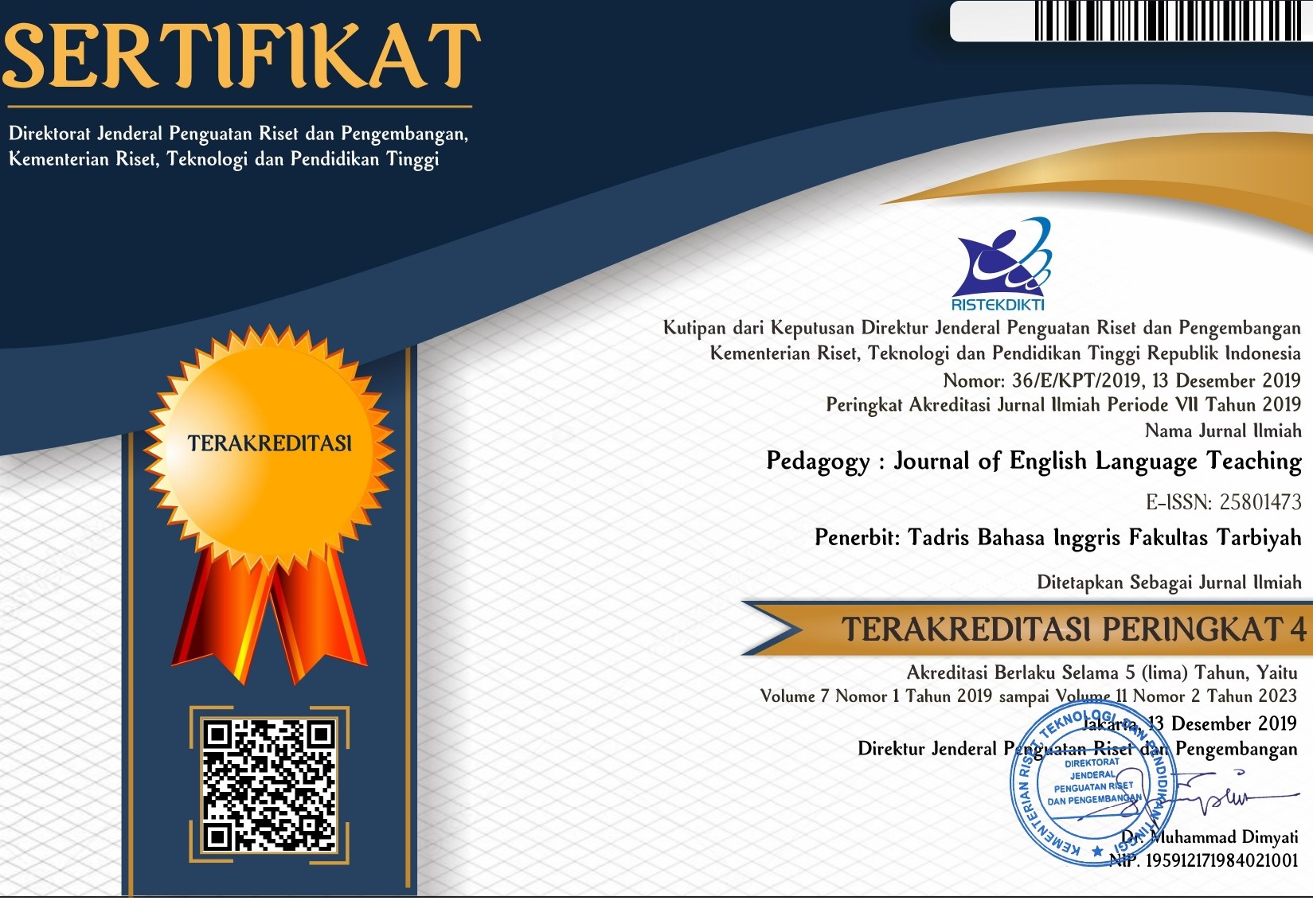Students’ Autonomous Learning Activities outside the Classroom to Master English as a Foreign Language
DOI:
https://doi.org/10.32332/joelt.v10i1.4716Keywords:
Autonomous Leaning, EFL, learner autonomy, learning, outside the classroomAbstract
The complexity of foreign language learning and its restricted time to learn in the classroom need proactive efforts from the English students outside the classroom with full initiative and effort. This study tended to investigate to what extent students’ autonomous learning activities outside the classroom to master English (four English skills). This study applied a descriptive quantitative design. It was conducted at a state university in Majene, West Sulawesi, Indonesia in the academic year 2021/2022. The population was English education students in the second and third years. There were 62 students who participated in this research. They were selected by using a convenience sampling technique. To gain the data, this research employed a questionnaire as a research instrument which consists of 16 items of statements. The data, then, were analyzed by employing descriptive statistics. Based on the data analysis, it was found that students’ autonomous learning activities outside the classroom are still limited to activities that are entertaining for them. Apart from that, it has not been found that their extra efforts are done independently to become more proficient in every English skill. This indicates that students are still passive learners. By knowing the independent learning efforts carried out by students out of the classroom, English lecturers are expected to be able to design policies or teaching strategies to guide students so that they can increase their efforts by optimizing the wealth of available independent learning resources.
















